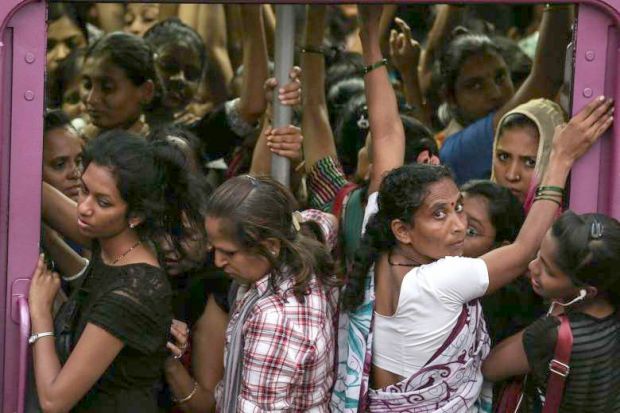In a new report released this week, the Global Gender-Based Violence Task Force recommended specific, fundamental steps to strengthen the World Bank’s capacity to identify, mitigate, and prevent risk of sexual exploitation and abuse in the projects it supports.
The report, Working Together to Prevent Sexual Exploitation and Abuse: Recommendations for World Bank Investment Projects, includes recommendations to:
• prevent sexual exploitation and abuse of women and children through improved World Bank project risk assessment, active community engagement, and the design and monitoring of systems to minimize risks;
• leverage existing World Bank efforts to enhance environmental, social, and procurement frameworks to intensify attention and accountability around sexual exploitation and abuse; and
• build the capacity of the World Bank, government, and contractors to take on their respective responsibilities for action, while also working together to protect women, children, and other vulnerable groups at risk.
•
“Addressing sexual exploitation and abuse and other forms of gender-based violence is complex and challenging,” said Geeta Rao Gupta, co-chair of the task force and former Deputy Executive Director of Programs at UNICEF. “We feel the Task Force recommendations, in combination with the suite of actions already taken on board by the Bank, will go far to protect women, children, and other populations at risk in settings where World Bank projects take place.”
The report emphasizes that preventing or mitigating against project-related risk of sexual exploitation and abuse requires interaction and collaboration between five key groups of actors:
1. women and children at risk, as well as other vulnerable populations, in communities where Bank-financed projects take place;
2. communities that can play a role as dynamic risk management actors in expanding the circle of protection;
3. contractors and consultants responsible for following contractually mandated social and labor practices that prevent abuse and violence;
4. government partners at central and local levels who are critical to ensuring that sexual exploitation and abuse (SEA) prevention and accountability mechanisms are in place; and
5. the World Bank, which can put in place the policies and systems to prevent such incidents and play a convening role to facilitate partnerships that allow each of these actors, including the World Bank itself, to take on their respective roles and accountabilities to protect women and children from grievous harm.
Implementation of the recommendations would help set a new standard for the conduct and behaviour of companies bidding on World Bank-supported government contracts. For example, the report recommends establishing pre-qualification criteria that requires all civil works contractors to declare whether any contracts have been suspended or cancelled for incidents related to sexual exploitation and abuse. This will help generate a baseline register of firms implicated in sexual exploitation and abuse, which can be tracked over time and inform the bid review process. Codes of Conduct, already mandatory for all contracts under the World Bank’s new procurement framework, should include more targeted prohibitions against sexual exploitation and abuse, including prohibition of sexual activities with anyone under the age of 18, regardless of national statues and laws, the report says.
The Task Force also recommended that projects identified as high risk of sexual exploitation and abuse trigger a series of mandatory requirements, including demonstration by bidders that they have the capacity to manage risks related to sexual exploitation and abuse, such as providing indications of appropriate technical capacity and key personnel. Mandatory measures further require hiring of a Third-Party Monitor to ensure provisions to prevent and respond to sexual exploitation and abuse are in place and functioning.
In addition to enhancing World Bank environmental and social and procurement frameworks, the Task Force recommended the World Bank actively foster an internal culture that promotes these changes, such as clear signals of support from management and providing clear guidance and incident-reporting protocols that encourage identification of new cases.
The Task Force also emphasized the importance of embedding continuous learning as part of uptake and implementation of the recommendations in order to gauge effectiveness of the new processes, to learn from mistakes, and to understand skill and budget dynamics. Additionally, the Task Force recommended the World Bank request its internal Independent Evaluation Group (IEG) conduct a review after four years to assess what is working and where gaps remain.
The World Bank is developing an Action Plan that will lay out how it will implement these recommendations. The Action Plan is anticipated for completion later this fall. The findings and recommendations presented in the report reflect the culmination of seven months of Task Force deliberations through both in-person and virtual meetings. The Task Force was created in October.






















